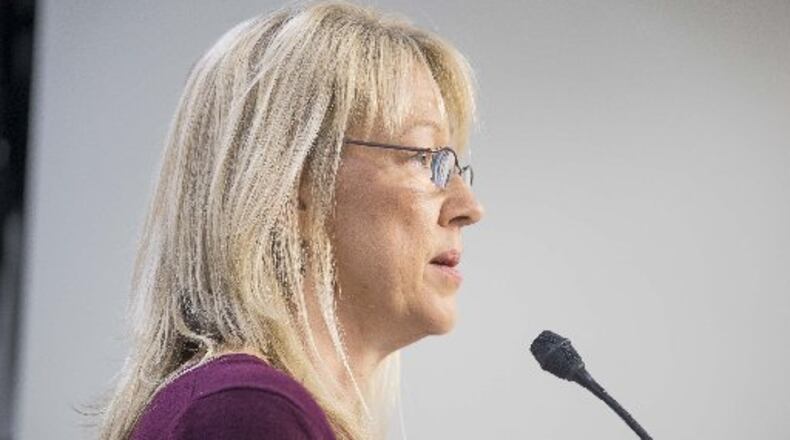The city of Atlanta needs stronger policies and safeguards within the Finance Department after a former city executive racked up hundreds of thousands of dollars in questionable charges on airfare, luxury hotels and high-end restaurants worldwide, according to a new internal audit.
Atlanta’s government departments have to obtain a purchase order from the city’s Procurement Department before exchanging any money for goods or services on the city’s behalf. However, a report from Atlanta Auditor Amanda Noble’s office found the city doesn’t use purchase orders for expenses as high as $5,000, or for purchases made through direct payments.
The purchase order process gives the Procurement Department an opportunity to review payment requests among the city’s departments, whereas direct payments allow departments to obtain goods or services at a quicker pace. Direct payments typically cover utilities, settlements, and court fees, among other things. But last year, the city racked up $126 million in direct payments — nearly 5% of the city’s expenses in 2021 — and over three quarters of those payments could’ve gone though procurement first, according to the audit.
Brandi Bell, Atlanta’s senior performance auditor, told Atlanta City Council’s Finance Executive Committee Wednesday that former Atlanta Chief Financial Officer Jim Beard used direct payments to misspend city dollars because it has fewer controls than the procure-to-pay process.
The report, which is online, outlines several ways the city can improve its payments system.
| City Auditor’s recommendations |
|---|
| Revise Accounts Payable policy to require departments to use micro-purchasing for goods/services under $5,000 |
| Report dashboard results for each city department to the Finance Executive Committee |
| Ensure the Accounts Payable policy requires department head approval |
| Prevent staff who set up one-time vendor profiles in Oracle from creating/approving associated direct payments |
| Work with third-party vendor to improve the accuracy of the dashboard |
| Consider auditing the dashboard report quarterly for data reliability |
| Provide periodic refresher training to departments on dashboard and account coding |
| Work with city departments to improve consistency in account coding |
Last year, a city audit found that Beard sidestepped internal controls due to a “wild west” culture among management in former Mayor Kasim Reed’s administration. Beard’s conduct was exposed after The Atlanta Journal-Constitution and Channel 2 Action News found lavish spending on his city-issued credit card, a purchase of machine guns with taxpayer funds, and $800,000 in bonuses handed out at the end of Reed’s second term in 2017.
Atlanta’s Ethics Division in 2019 ordered Beard to pay more than $100,000 in fines and restitution. Beard appealed the order three times and failed at each, forcing him to pay back the city in the form of an appeal bond.
An attorney for the Governing Board of the city’s Ethics Division told the AJC Tuesday that Beard obtained a personal insurance policy to give Atlanta more than $84,000 this month. The city’s ethics officer said the payment covers Beard’s dues to the city.
However, the Governing Board attorney said in an email that they have “not closed the door on this matter” because the remaining money owed to the city are administrative sanctions amounting to approximately $18,485.
Federal investigators have scrutinized travel and other spending records at City Hall as part of a multi-year corruption investigation. Beard is currently under federal indictment for fraud and weapons charges, and has pleaded not guilty.
City Auditor Noble said the latest audit covers fiscal year 2021, and that consulting and professional services had the highest dollar amount for direct payments. She also said the finance department is already implementing most of their recommendations.
Mohamed Balla, the city’s current chief financial officer, also acknowledged how the audit discovered duplicate payments in some cases. He said the city has retrieved those funds.
“We are on the same accord to make sure that those concerns are addressed,” Balla said of the audit’s findings. “I commend the team for taking a deep dive into this.”
About the Author
Keep Reading
The Latest
Featured




